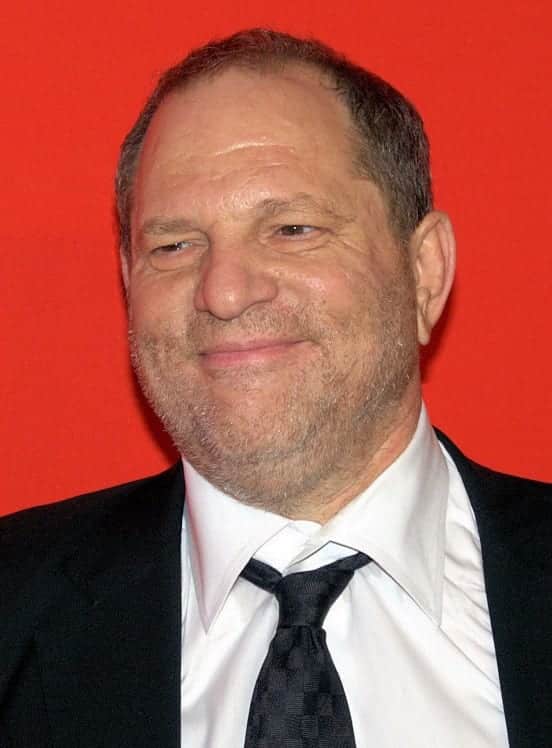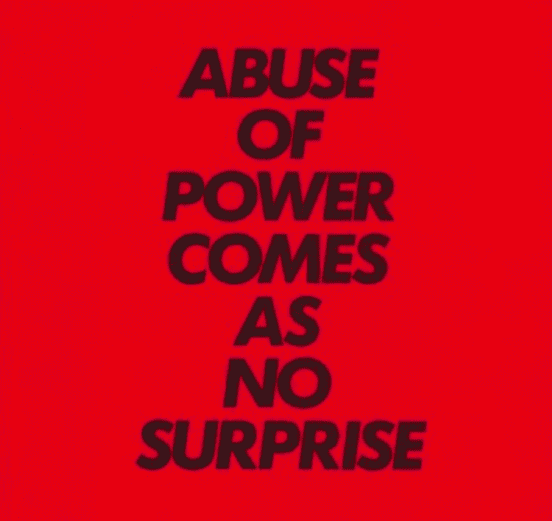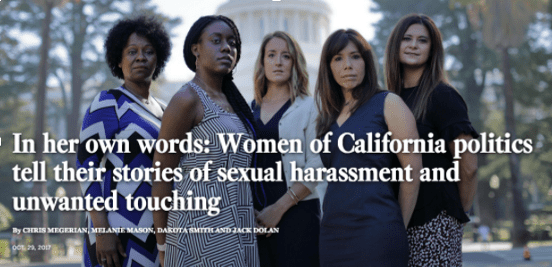Employees fight for workplaces free of abuse
NOV 1, 2017 | COWORKER.ORG
Workers have been speaking out (and taking risks by doing so) to expose sexual harassment and abuse in their workplaces for years. For example, a few years ago, women working for a cleaning contractor at the Brisbane Airport in Australia led a successful campaign on Coworker.org calling for the termination of a boss who sexually harassed and abused several workers and threatened them with deportation if they spoke out.
Since The New York Times and the New Yorker published stories of dozens of women in the entertainment industry who allege that film executive Harvey Weinstein sexually harassed or even assaulted them, more and more people have been coming forward with their own experiences of workplace sexual harassment in a broad range of industries — and in doing so making it clear that this is not only an individual crisis but a workplace issue.

Many recent examples:
Professionals who work in many different parts of the entertainment industry have joined the chorus.
- In addition to actresses and employees who spoke out about Weinstein, a former assistant of his, Zelda Perkins, broke her non-disclosure agreement to discuss his behavior. Another group of Weinstein Company employees published an open letter in the New Yorker that in part calls for the company to release current and former employees from non-disclosure agreements so that they might “speak openly, and get to the origins of what happened here, and how.” Similarly, former Fox News journalist Gretchen Carlson, author of Be Fierce: Stop Harassment and Take Your Power Back (#BeFierceBook), has spoken about the ways that binding arbitration and nondisclosure clauses in employee contracts silence employees.
- Actress Mia Kirshner wrote about her own experience with harassment in the industry and outlined her thoughts on how unions in the entertainment industry could better protect members from similar situations.
- The LAPD is now investigating former APA talent agent Tyler Grasham who was fired “amid numerous accusations of sexual assault and harassment from men.”
- Hundreds of women told the Los Angeles Times about filmmaker James Toback’s “wide range of unwanted sexual advances and behavior.”
- Actor Anthony Rapp shared his story of Kevin Spacey’s alleged sexual misconduct with BuzzFeed — and now other actors have come forward with similar stories.
- A former employee of the popular TV show “The Bachelor” filed a suit against several executives “alleging sexual harassment, intentional infliction of emotional distress, and wrongful termination.”
- Women and gender-nonconforming people working in animation sent a letter to more than a dozen studios demanding an end to sexism and sexual harassment in the industry.
In the restaurant industry, 25 current and former Besh Restaurant Group employees talked to NOLA.com about celebrity chef John Besh and “a corporate culture where sexual harassment flourished.” Journalist Tracie McMillan shared her own story and her perspective on how the a culture of harassment thrives in restaurants. She also notes a ROC-United report from 2014 that found 66% of female restaurant employees reported having been sexually harassed by managers.

“Workers of the art world” published their own open letter to “call upon art institutions, boards, and peers to consider their role in the perpetuation of different levels of sexual inequity and abuse, and how they plan to handle these issues in the future.” The letter was published after Knight Landesman, the publisher of Artforum magazine, resigned when “nine women said in a lawsuit that he had sexually harassed them.”
Elsewhere in the world of publishing and journalism, several women stepped forward to accuse Leon Wieseltier, former literary editor of The New Republic, of sexual harassment. NBC News and MSNBC dropped ties with journalist Mark Halperin after multiple colleagues accused him of sexual harassment and assault. Vox Editorial Director Lockhart Steele was fired after alleged inappropriate sexual conduct.
Former ad industry executive Cindy Gallop put out a call for women to share their stories and she reportedly received more than 100 emails from “women in ad agencies at all levels and from all over the world detailing incidents of sexual harassment.”
In the field of labor organizing, multiple employees of SEIU’s Fight for 15 campaign have been let go “amid an ongoing investigation into allegations of misconduct and abusive behavior.”

Some types of workers including, but not limited to, government employees, agricultural and domestic workers, and independent contractors are not covered by the National Labor Relations Act (NLRA), the federal legislation that gives employees the right to take collective action over workplace issues. Others, like railway and airline workers, are subject to other legislation and restrictions on their right to strike. In some cases, workers in specific states have broader protections. (You can find more information on this subject here.)
It is important to note that even if you are included under the NLRA, a walkout that isn’t meant to collectively improve the working conditions, wages, benefits, and other aspects of employment would likely fall outside of these protections and you could risk retaliation and other repercussions.
Even legislators and their staff members are having their say about harassment they’ve experienced in the halls of government. State employees in Illinois and California have both published open letters that have sparked discussion and action. Current and former legislative staff and lobbyists in Washington state and Massachusetts told their stories of harassment and a state Representative in Arizona did the same. On the federal level, Representative Jackie Speier (D-CA) started the hashtag #MeTooCongress, which has sparked other stories.
In the hospitality industry, a former supervisor at Omni Hotels & Resorts filed a suit alleging sexual harassment and that she faced retaliation for talking about it.
In the world of finance, women’s accounts of sexual harassment at Fidelity Investments has led to resignations and a company-wide effort to address the issue. The Wall Street Journal reported that “a June 2015 report written by a working group of female Fidelity employees was presented to senior staff in the firm’s stock-picking unit [that] warned of a male-dominated culture at the equity unit and its detrimental effects on women in particular.”
This list of people who have exposed abuse in their workplaces just in the past month alone is far from exhaustive, and it is sure to grow. By sharing their stories, these employees are taking important steps in the process of workplace organizing. Employees speaking out — often facing significant hurdles — are starting to demand policy changes not just sanctions on individual predators. The coming months are sure to be a turning point in many workplaces across the U.S. and around the world.
Coworker.org is a global platform to advance change in the workplace. Our technology makes it easy for individuals or groups of employees to launch, join and win campaigns to improve their jobs and workplaces. You can start your own campaign about changes you want to see in your workplace on Coworker.org here — or contact us at [email protected] if you would like to discuss a workplace issue with our team.
If you have experienced sexual harassment in your workplace, the U.S. Equal Employment Opportunity Commission (EEOC) has set up this page with additional information.
UPDATE (11/1/17):
Since this piece was written, more workers have stepped forward to share their experiences:
- Kelly Tolar, a locations assistant and office manager for the CBS show Hawaii Five-0, filed a suit saying she was repeatedly harassed by a coworker while employed by the show in 2015.
- Two journalists have accused the head of NPR’s news department of making “unwanted physical contact with them while he was employed by [The New York Times] nearly two decades ago.”
- Six women have come forward and accused film director Brett Ratner of sexual harassment and misconduct.
- Outside investigators confirmed that a DeKalb Commissioner in Georgia violated the county’s sexual harassment policy after a county employee spoke out.

